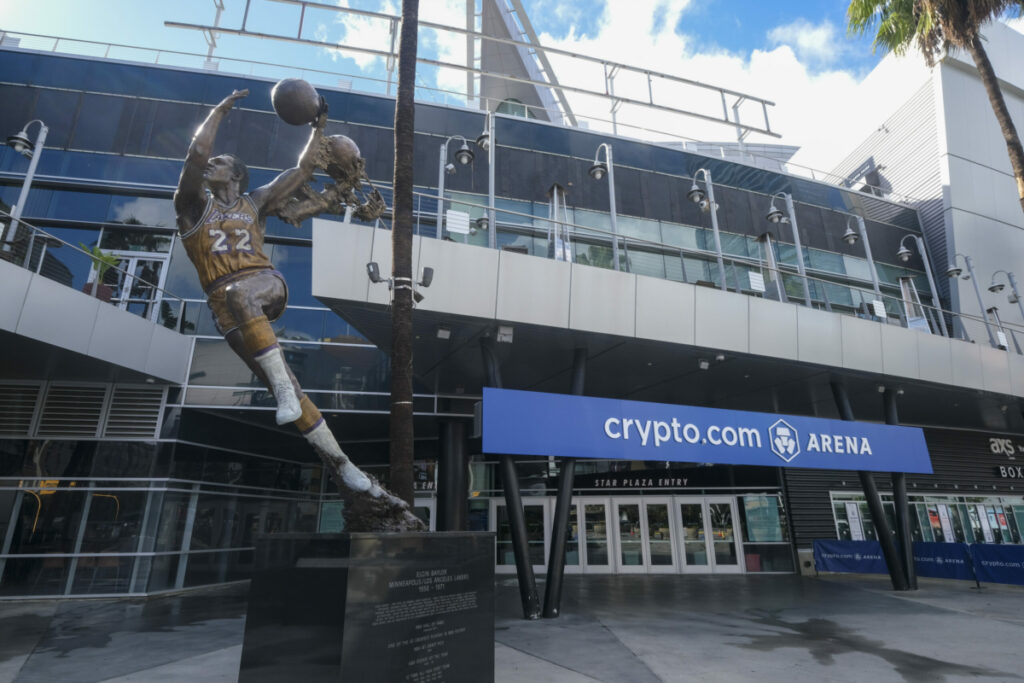The Los Angeles Lakers got a procedural win in their fight to secure insurance coverage for the losses the team experienced during the Covid-19 pandemic’s business shutdowns — a development that some believe could set a precedent for similar cases.
“This ruling will have an impact on cases involving restaurants and hotels, venues, bars, goods and services and places where people congregate,” said Doug Rawles, a litigation partner at Reed Smith. “It’s still an evolving landscape (as of now), so this could have a fairly significant impact, depending on which way the Ninth Circuit rules and how this case comes out.”
The amount of money the team is seeking in insurance claims has not been disclosed. The Lakers, their representatives nor the representatives of the defendant, Chubb subsidiary Federal Insurance Co., responded to requests for comment.
The team’s legal progress came in an Oct. 26 order from U.S. District Judge Terry J. Hatter Jr. The order affirmed a previous decision in March that the team adequately alleged the Staples Center, now called Crypto.com Arena, was damaged by the Covid-19 virus to the extent that it had a financial impact on the team. Specifically, the Lakers alleged that the virus changed surfaces and objects at the property through physical and chemical reactions.
Many Covid-inspired business interruption cases against insurers have not gone far in court. The Lakers case is unusual in that it argues that the arena in which it plays games was physically altered by the virus. That sets up a potential new front against insurers. Business interruption insurance can kick in when a place of business is altered such that work cannot be done there.
The court concluded that the Lakers’ theory was plausible. Whether the Lakers can prove the theory will be determined at summary judgment or trial. The affirmation gives the Lakers the opportunity to appeal a part of the decision that initially dismissed the team’s claim for business interruption coverage.
“The court lacks the scientific expertise necessary to conclude, based solely on the allegations in the (first amended complaint) … that it is not plausible for the Lakers’ property to have been physically altered by the virus, which the Lakers adequately alleged,” Hatter wrote. “Consequently, the court, in the March 17 order, concluded that the Lakers’ theory was plausible.”
Next steps
At this point in the appeal process, a summary judgment or trial will be needed to determine whether the Lakers can proceed.
One point the Lakers are trying to argue is that they should receive business interruption coverage based on the closures of insured properties and have civil authority loss claims honored due to government orders that prohibited access to its property.
To resolve its arguments, the Lakers previously made a motion for an interlocutory appeal, which occurs when a ruling is appealed while other parts of a case proceed. The motion was granted by Judge Hatter in the Oct. 26 order.
“The question of whether the Lakers sufficiently stated claims, here, regarding its insurance claims for business interruption and civil authority coverage satisfies the standard for an interlocutory appeal,” Hatter wrote. “That question bears significantly on the resolution of this case, and the large number of nearly identical cases.”
Rawles, who is not involved in the Lakers case and who represents policyholders in claims against insurance entities, said at this point that the Lakers case essentially survived a pleadings challenge and will continue toward trial unless disrupted by another motion.
Rawles added that because the case will reach the Ninth Circuit Court of Appeals, its decision naturally carries more weight because a ruling would be binding on all the district courts within the circuit.

Similar cases
According to a Law360 tracker that documents Covid business-interruption cases, 1,428 Covid-related business interruption cases had been filed in the United States as of Nov. 7, including 21 lawsuits in the Southern District of California. However, of those cases, 39% have been dismissed, according to the tracker.
Despite the unfavorable track record, Rawles does not necessarily see a losing battle for policyholders. He stressed that the success rates of such cases primarily come down to which state they are filed in and whether they go to state or federal court.
Rawles said there are cases going to trial and resulting in approved motion practices, which are motions that ask courts to decide a case for the moving party with no trial. “It really is a hard-fought battle and will continue to be a hard-fought battle on both sides,” Rawls said.
Entities that own assets such as hotels, restaurants, bars and entertainment companies account for a large number of such cases, according to Rawles.
In the Los Angeles region, local companies such as United Talent Agency, Paramount Pictures and Live Nation have brought forth lawsuits with little success. In the case of the Beverly Hills-based United Talent Agency, the company wanted coverage for the losses linked to the cancellation of live events and movie and TV productions. It argued that its “all-risk” policies should have applied to pandemic losses, but the company’s case was ruled against.
“It is now widely established that temporary loss of use of a property due to pandemic-related closure orders, without more, does not constitute direct physical loss or damage,” California’s Second Appellate District said in an April order in the case.
Rawles said it is hard to tell if there will be an increase of Covid business interruption cases. He noted that the time in which companies must bring such lawsuits varies per state.
“Some states are as short as a year, some will allow even shorter periods of time,” he said. “But typically, a year is on the low end.”
